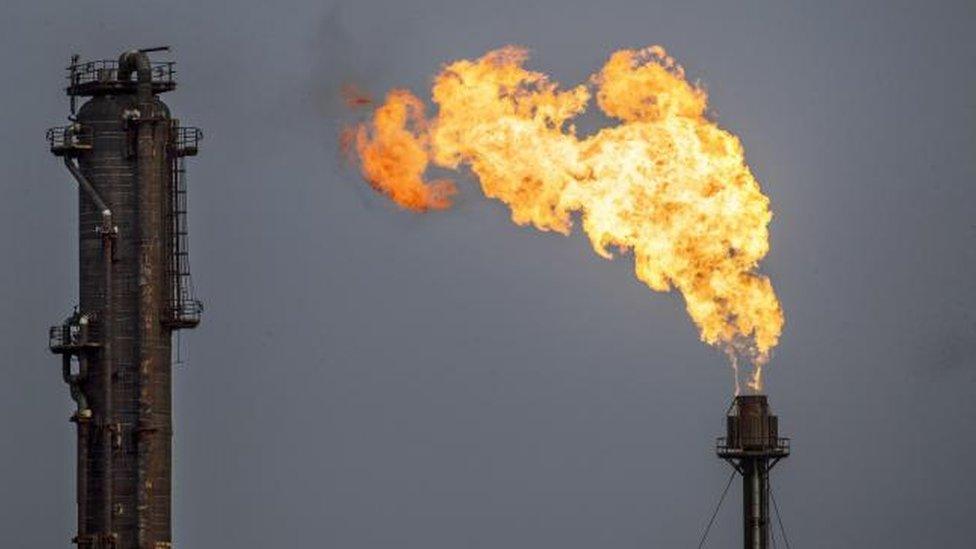Mossmorran flaring had 'physical and psychological' impact
- Published
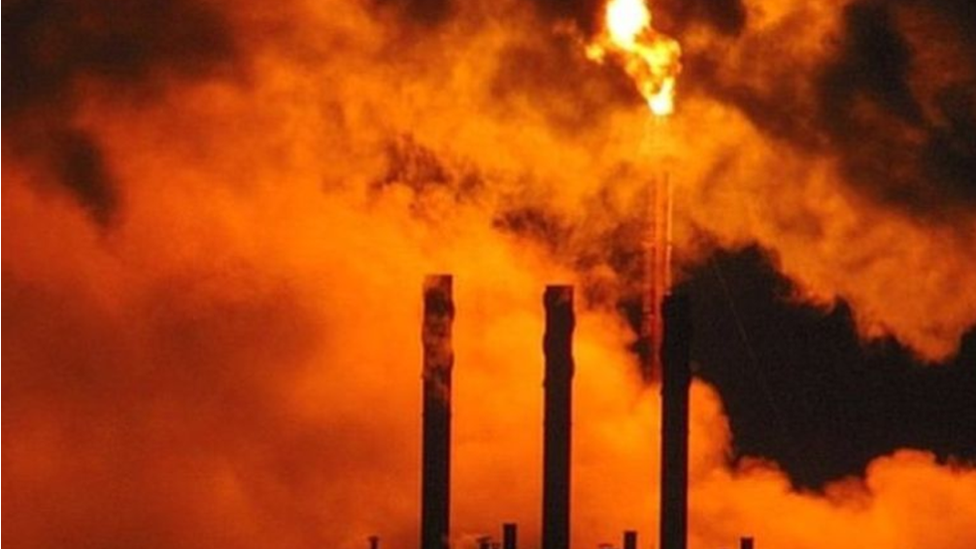
The Mossmorran plant was heavily criticised for five days of unplanned flaring in April
Flaring caused "a considerable degree of physical and psychological disturbance" to people living near a Fife chemical site, the NHS has said.
NHS Fife said it had assessed 900 complaints to the Scottish Environment Protection Agency (Sepa) following five days of flaring by Exxonmobil at Mossmorran.
It was criticised for the unplanned flaring in April.
Exxonmobil said it now had a plan in place to reduce flaring.
However, in its report into the potential health effects of the flaring, external on residents living nearby, NHS Fife described "a considerable degree of physical and psychological disturbance caused to people in the vicinity of Mossmorran."
Health concerns
A health spokeswoman said their report concluded that the overall impact of flaring on locals in recent years had "not been acceptable and could plausibly affect their health in the widest sense."
The NHS report comes after Sepa received a total of 1,400 complaints regarding the Mossmorran site, which is also shared by Shell, since the start of 2019.
NHS Fife said the most frequently cited health concerns related to sensory perception (disturbing amounts of noise, bright light and black smoke during flaring activity).
Complainants also cited respiratory conditions including asthma, wheezing and breathing difficulties.
Some complaints related to sleep disturbance, headaches, nausea and anxiety.
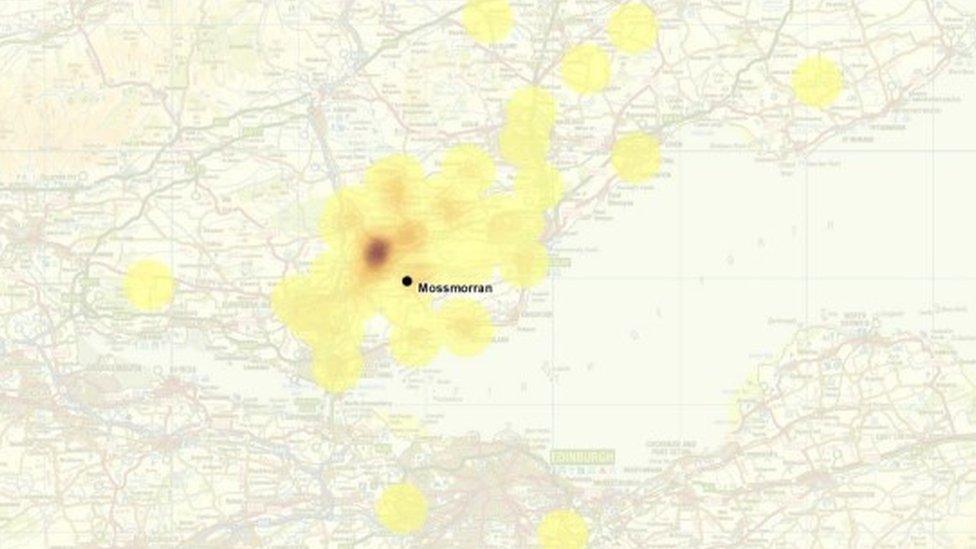
Public complaints relating to health came from areas in yellow on the map
Despite six complaints about a perceived increased risk of cancer, the report said there was no evidence of higher-than-expected cancer rates in the area surrounding Mossmorran.
It did however add that future cancer data could be looked at to take into account geographical and time factors.
'Degree of nuisance'
The report also said Sepa had monitored air quality more intensively during and after flaring incidents with no significant impact on local air quality being found.
The report added: "It would appear that non-visible effects of flaring are unlikely causes of local ill health.
"While there continues to be no evidence of significant negative impacts in terms of air quality or cancer incidence, it is clear that the degree of physical and psychological disturbance caused to people in the vicinity of Mossmorran has been considerable.
"Given the degree of nuisance presented by such intense flaring, it would not be surprising if people experienced anxiety, interrupted sleep, or other physical symptoms mediated by their response to what they can readily see and hear."
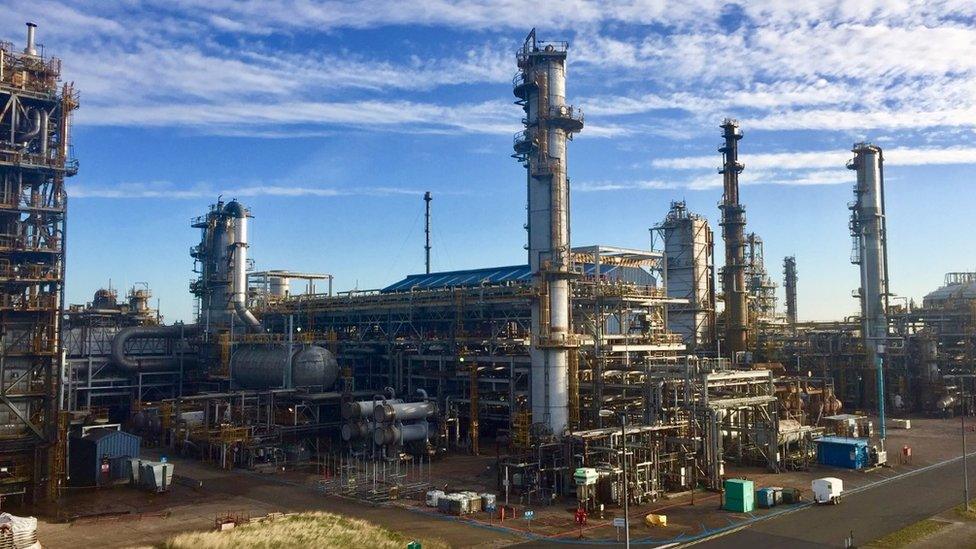
Shell operates the Fife NGL Plant and ExxonMobil the Fife Ethylene Plant at Mossmorran
Lesley Laird, MP for Kirkcaldy and Cowdenbeath, said people living near the plant would be relieved to know their health concerns were being taken seriously.
She added: "This is an important study - the first of its kind in relation to Mossmorran - and it's vital that we learn the scope of the exercise and what baseline data was made available to better understand the effects of flaring."
Stuart Neill from ExxonMobil acknowledged the need to address community concerns associated with flaring and said the company were "delivering our best available techniques programme".
He said the plan would "not only reduce the frequency of flaring but also noise, light and vibration on the occasions when we need to use the flare."
He added that they were investing £140m in modernisation and maintenance to improve operational reliability and reduce unplanned flaring.
Residents have complained of hayfever-like symptoms, red itchy eyes, headaches and breathing difficulties.
Linda Holt, spokeswoman for the Mossmorran Action Group said the report was only a first step.
She added: "The study admits that more research and analysis on cancer rates in the Mossmorran area and on flaring by ethylene plants is needed."
'Unacceptable and preventable'
She called for an independent study to establish the full health, social and environmental impacts of the plant.
A spokeswoman for Sepa said they had noted the conclusion of NHS Fife's report and its recommendation that every effort be made to reduce the frequency, duration and intensity of these events.
She said: "This reflects Sepa's clear message that repeated unplanned flaring has been both unacceptable and preventable and that in future flaring will be the exception rather than routine."
Teresa Waddington, from Shell Fife NGL said: "We hope this report provides reassurance that, after further extensive analysis, there's no evidence of a significant effect on air quality around the Mossmorran site."
- Published30 August 2019
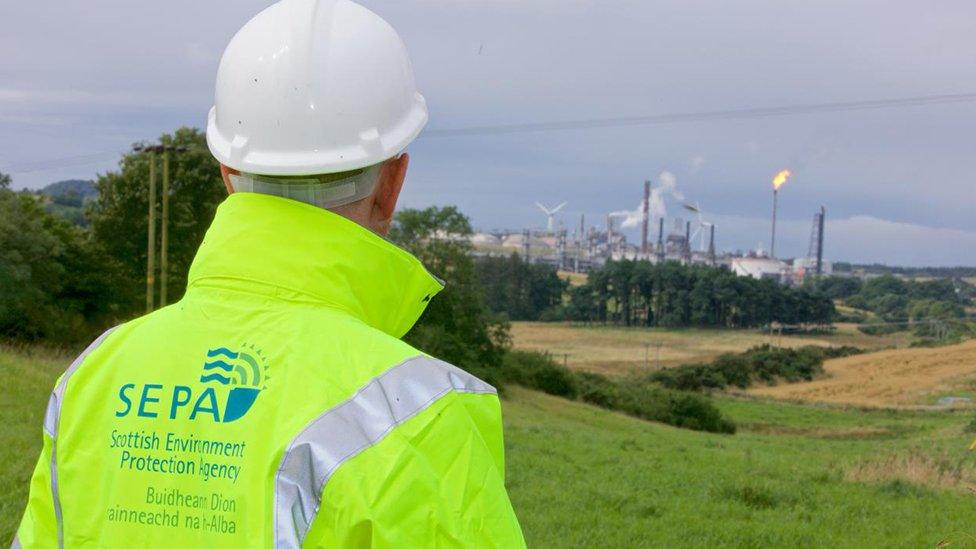
- Published24 August 2019

- Published23 August 2019
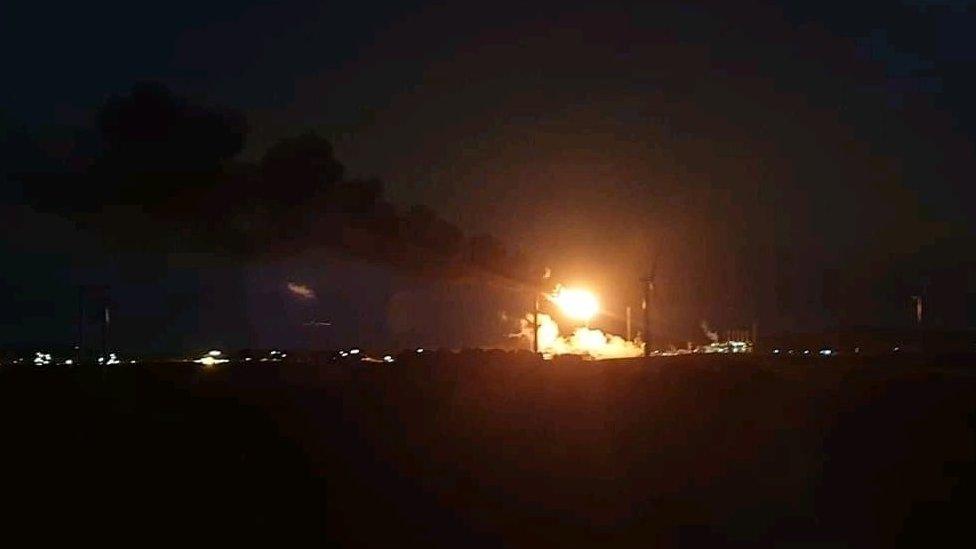
- Published22 August 2019

- Published13 August 2019

- Published10 August 2019
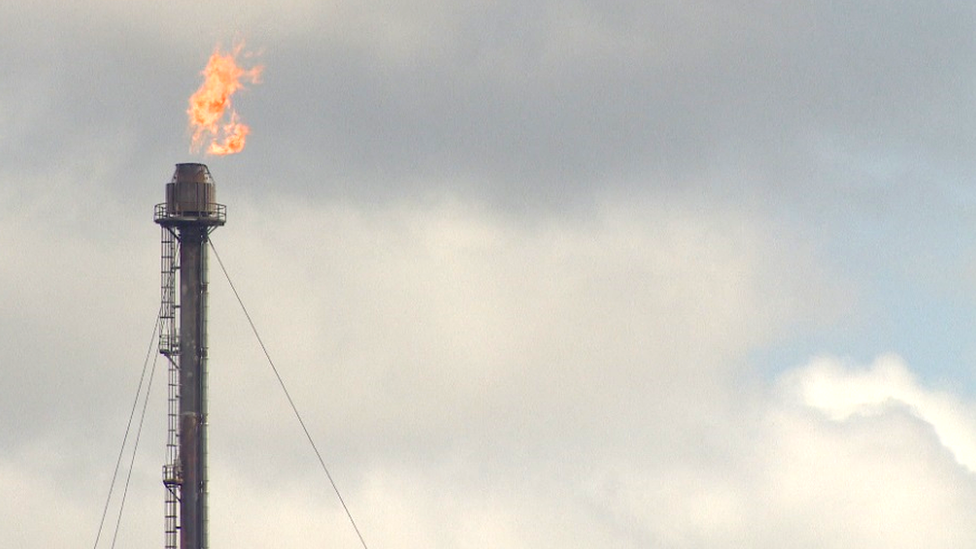
- Published30 June 2019
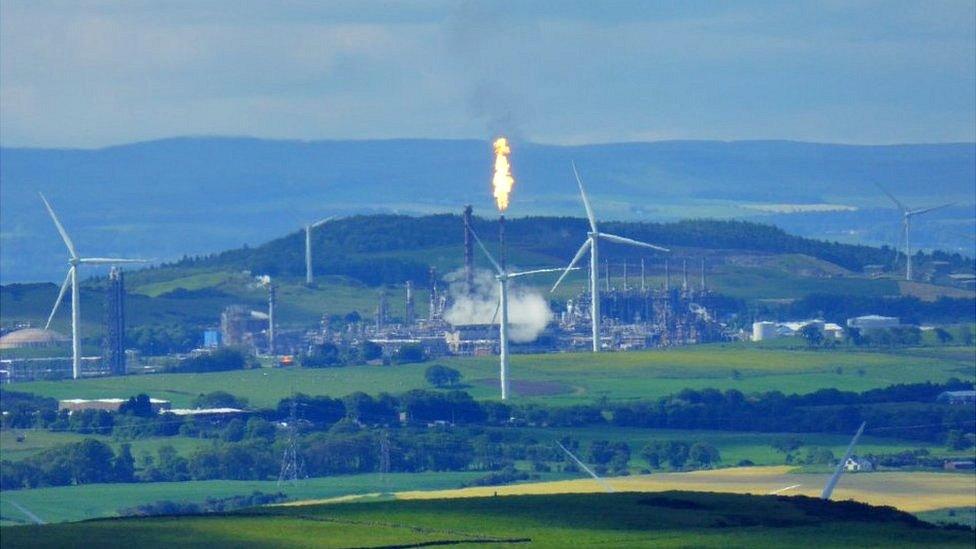
- Published14 June 2019
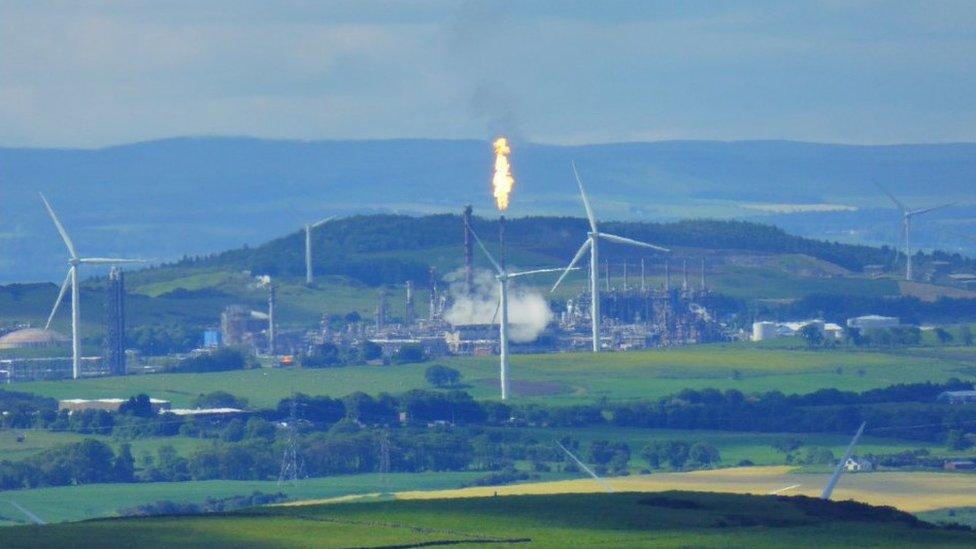
- Published27 April 2019
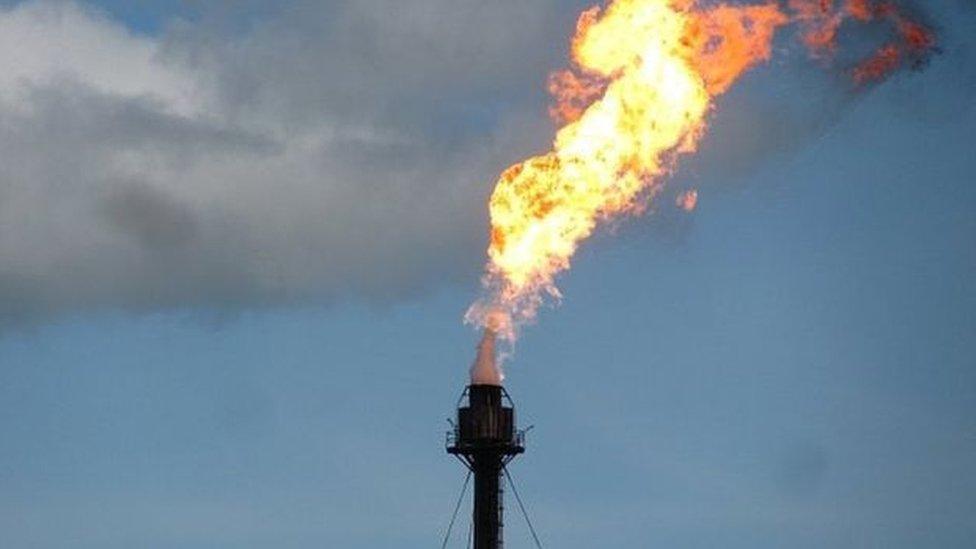
- Published23 April 2019
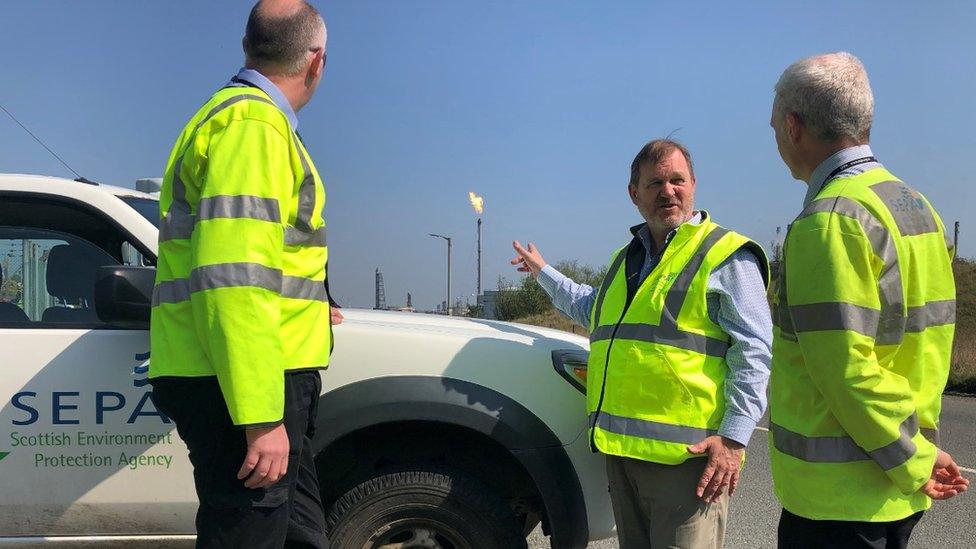
- Published25 April 2019
